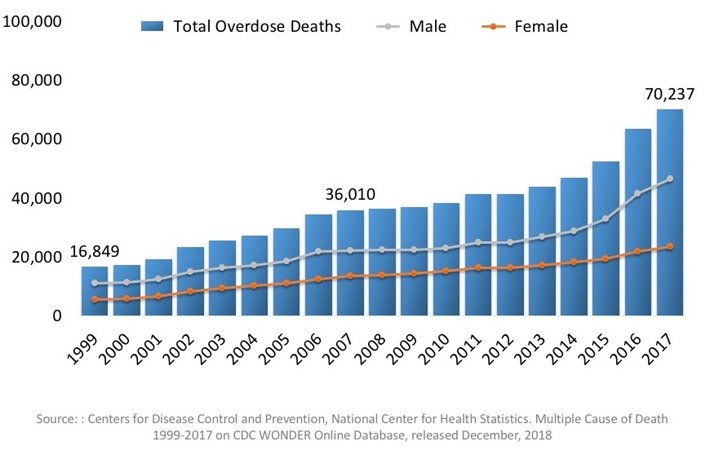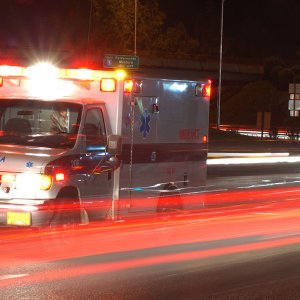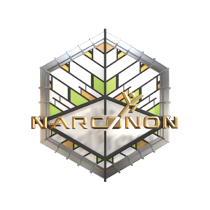
What is the Real Scope of Drug Deaths in America?
One of our top priorities in life is making sure that our family members are doing well, that they’re leading healthy, happy lives. In fact, our own health and happiness are largely based on the health and happiness of those we love the most.
The U.S. is caught up in a public health crisis of drug addiction that makes a happy, healthy life seem unattainable for millions of Americans. With new reports indicating that drug-related deaths are likely more than double what we thought they were, the crisis of drug addiction in America suddenly becomes all the more severe.
A Concerning Report
On January 15th, 2020, an alarming study was published in the Public Library of Science. The thesis of that research paper was that drug-related deaths are much higher than we’ve been led to believe.
When the drug crisis began in the early-2000s, drug-death reporting revolved almost entirely around drug overdoses. Even in the present day, government reports from organizations like the CDC and the National Institute on Drug Abuse still focus almost wholly on overdose deaths.
And not without good reason. In 2018, 70,237 people died in the U.S. from drug overdoses. Compare that to 16,849 overdose deaths in 1999 and it’s clear that overdoses are a growing problem. Public health agencies and government institutions are right to keep close track of drug overdoses and to work to prevent them.

But drug overdoses are only one problem on the drug scene.
According to the new research, government records have not been categorizing “drug-associated” deaths as being drug-caused deaths. For example, if an addict dies from HIV/AIDS or hepatitis, what actually killed the addict? Was it the infectious disease? Or was it the drug use that caused the addict to use a shared needle, which then caused him to contract such a disease? These deaths are classified as deaths by infectious diseases, but they should also be classified as drug deaths.
Reports indicate that in 2016, 63,000 people died from drug overdoses. However, if we add on additional drug-associated deaths, it’s more accurate to say that 142,000 people died from drugs in 2016. By adding all the other causes of death that are related to drug use, the total death toll from this terrible health crisis more than doubles.
And it’s not just drug-associated HIV/AIDS and hepatitis diseases that are taking lives. Impaired judgment, violent crime, car accidents, circulatory diseases, extreme poverty, domestic crisis, poisoning incidents, all of these can be the result of using drugs. And all of these can be fatal.
“Drugs can kill in other ways. Infectious diseases like HIV/AIDS and hepatitis, impaired judgment, suicide, circulatory disease – these are all affected by drug use. People who are perpetual drug users have much higher mortality in general.”
Samuel Preston, a professor of sociology at the University of Pennsylvania, co-authored the study. According to Preston, “Drugs can kill in other ways. Infectious diseases like HIV/AIDS and hepatitis, impaired judgment, suicide, circulatory disease – these are all affected by drug use. People who are perpetual drug users have much higher mortality in general. The basic records being kept are annual reports on the number of deaths from drug overdose. But that's only part of the picture.”
Preston and his researchers examined 44 million death certificates issued nationwide over an 18-year period. About 667,000 such certificates were coded as “drug-related deaths.” But upon closer analysis, those 667,000 deaths accounted for only about half of all drug-related deaths. If we add all of the other causes of death that were in some way related to drug abuse, it’s more accurate to say that 1,334,000 people have died from drugs in the past 18 years.
It's worth mentioning that so many people have died from drug-related causes that there's a connection between drug deaths and America’s gradually receding life expectancy. Julia Haskins penned an excellent report on this in The Nation’s Health. According to her story, Americans are living shorter lives, primarily due to drug-related deaths and suicide which are public health crises that are entirely preventable.
It’s shocking to learn that, just since the turn of the century alone, almost 1.5 million people have died in the U.S. from drug-related causes. For those of us who have family members or loved ones who are using drugs, learning that nearly 1.5 million people have died from drugs in under two decades may bring about a sense of hopelessness and despair.
However, if you know someone who is struggling with a drug addiction, the correct thing to do right now is to take action, not to despair.
Why It’s Crucial to Get Your Loved One Help Now

It's not just an overdose that could be the end for your son or daughter, brother or sister, husband or wife. As we can see from the report, drugs kill in other ways, too. We must take this into account. Trying to protect our loved ones from overdoses is not enough. We have to help them get clean. Helping them break free from addiction is the only way to guarantee a safe and happy life for them.
If someone you care about suffers from drug addiction, your priority has to become one of helping that individual get into a residential drug treatment center. We cannot forget that the United States has the highest rate of overdose deaths among developed nations. Addiction is a fatal condition if it is not treated, and the recent data supports that fact.
Narconon exists to offer struggling addicts a proven rehabilitation program, a pathway that gets to the problem at its source. Narconon helps recovering addicts achieve long-term freedom from addiction. The program does so by utilizing unique, drug-free techniques to help people overcome the causes of addiction.
If your family member is struggling with addiction, make sure they get help today.
Sources:
- https://journals.plos.org/plosone/article?id=10.1371/journal.pone.0226732
- https://www.cdc.gov/drugoverdose/data/statedeaths.html
- https://www.drugabuse.gov/related-topics/trends-statistics/overdose-death-rates
- https://www.usnews.com/news/health-news/articles/2020-01-15/us-drug-deaths-might-be-twice-as-high-as-thought
- http://thenationshealth.aphapublications.org/content/49/1/1.2
Reviewed by Claire Pinelli, ICAADC, CCS, MCAP, LADC, RAS


